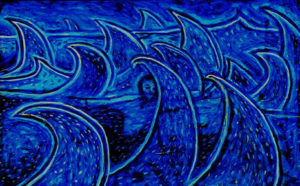This weekend marks the 50th anniversary of the march in Selma. As Americans and as Jews we are proud of this landmark achievement in our nation’s history and our part in it. Jewish Americans have been on the forefront of civil rights movement and we continue to champion civil rights and social justice for all. But the march in Selma is a seminal moment and we burst with pride, kvelling, at the sight of Rabbi Abraham Joshua Heschel along side of Dr. Martin Luther King Jr. We are deeply moved that so many American Jews stood bravely and fought during the struggle, most notably including those who gave their lives for these ideals.
This was our story. We Jews had found our place in American society and we found our voice. The prophetic ideals that are a foundation of our Jewishness galvanized us to support the civil rights movement because we believed that until all were free, none were free. So Jews stood proudly along side the African-American community demanding change.
However, the movie Selma does not tell this story. In fact, unless you looked carefully and unblinkingly during the march across the Edmund Pettus Bridge, you probably missed the man in the kippah off to the side. The story told in Selma, is moving, but it is not a story that includes us. It is told from the perspective of the African-American community and glorifies the struggle that was theirs. Although the time is the same, the march is the same and the facts are the same, the stories however are different. But that is okay.
The tellers of this story needed to share their perspective, which did not have room for us. Selma was about empowering their heroes to assert themselves. It is not an unreasonable thing to look through a different lens and tell a different story that has meaning even though it is not the telling of the story we might choose. That does not detract from the contribution that Jewish leaders made, nor does it lessen the pride that we might feel for their participation. It only shows that there are particular and more universal stories that might be told about the same unfolding of events.
As we approach the Pesach Seder, this gives us an opportunity to re-examine the telling of our quintessential freedom narrative. What do we emphasize and what do we leave out? Many different versions of the Exodus story will be told this night, each of them valid, each of them part of the larger story. The recollection of events only remains meaningful when we can make the connection to those events in a way that speaks to us. Only then is it more than a recounting of events, but rather a moving story that evokes emotion and prompts us to action. We share at our Seder tables the hope that “Next year may we all be free,” but until that time, may our stories keep the dream alive.

